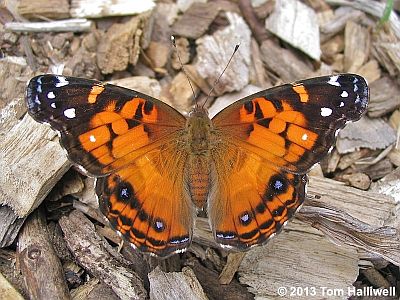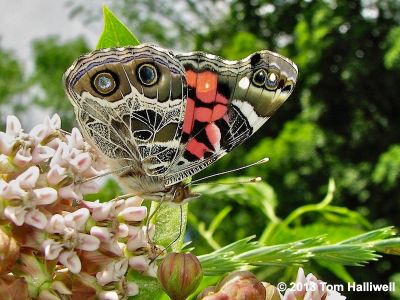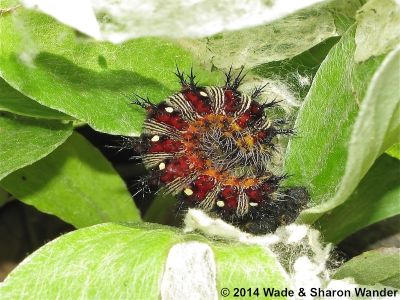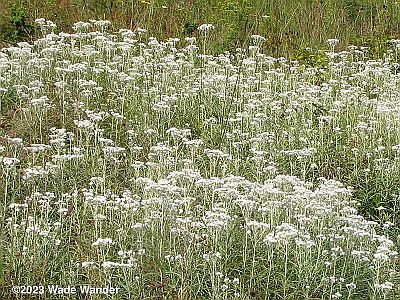New Jersey Butterfly Club
A chapter of the North American Butterfly Association (NABA)
American Lady
Vanessa virginiensis
Identification: Small—2.0” (much smaller than the similarly orange Monarch). Above: FW and HW orange and black with a few white spots in black FW apex. FW usually has a small white spot in the outermost orange square nearly halfway along outer margin. Black marks on inner FW near body do not form a connected arc (as in Painted Lady). Below: HW dark olive with intricate pale cobweb pattern, a conspicuous pale band across the midwing (lacking in Painted Lady), and two large, blue-centered eyespots near margin (Painted Lady has four smaller eyespots). FW with pinkish-orange area just above edge of HW.
NJ Status and Distribution: Resident. Usually fairly common and widespread. Migratory. Abundance varies from year to year depending on degree to which immigrants supplement residents.
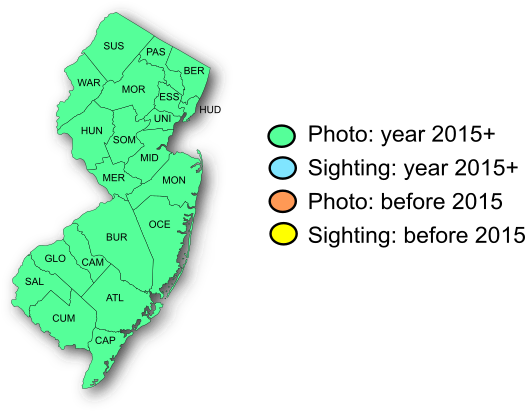
Habitat: Open, sunny, upland fields. Easily attracted to gardens with flowers such as Butterfly Bush, Purple Coneflower, asters, and milkweeds. One of our most familiar garden species.
Flight Period: Early April into November. Extreme dates: North Jersey 4/3—12/6; South Jersey 1/19—12/25.
Caterpillar Food Plants: Composites such as Rabbit-Tobacco (Pseudognaphalium obtusifolium), Western Pearly Everlasting (Anaphalis margaritacea), and pussytoes (Antennaria).
Overwintering Stage: Probably pupa but some adults may overwinter.
Good Locations: Everywhere.
Comments: Occasionally a very faded individual is seen in April that probably spent the winter in some protected crevice or woodpile.
